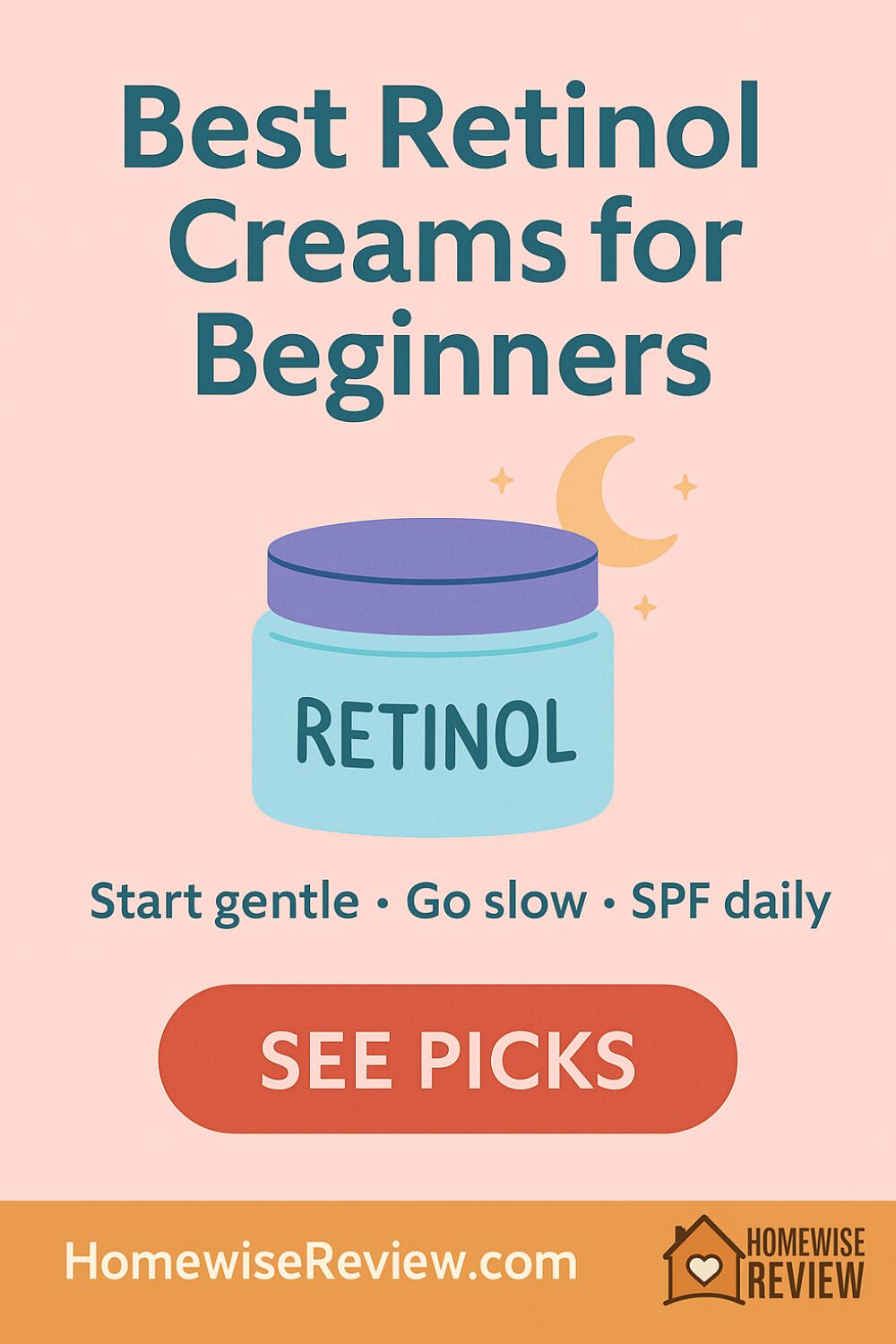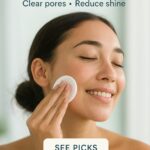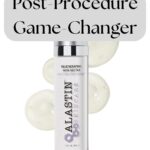
Beginner retinol should be low strength, well-buffered with moisturizers, and packaged to stay stable. Think encapsulated retinol or very low percentages in creamy bases so you get smoother texture and a glow without the burn.
If you’ve been curious about retinol but worried about peeling, the fix is simple—start low and go slow. Modern beginner formulas cushion retinol with ceramides, niacinamide, or glycerin so skin adjusts with fewer side effects. You will not see overnight miracles, but in 6 to 12 weeks you should notice a more even tone and softer lines.
Below are beginner-friendly creams and serums chosen for gentle delivery systems, calm textures, and packaging that keeps retinol active. Use them at night only, two or three times per week at first, and always wear sunscreen the next day.
Quick Picks
| Pick | Type/Strength | Best for | Why it’s great |
|---|---|---|---|
| Olay Regenerist Retinol 24 Night Moisturizer | Retinol + retinyl propionate, fragrance-free | Dry to normal newbies | Cushy cream, glow without sting |
| CeraVe Resurfacing Retinol Serum | Encapsulated retinol + niacinamide | Texture, post-blemish marks | Gentle, barrier-supporting, layers well |
| La Roche-Posay Retinol B3 Serum | Gradual-release retinol + niacinamide | Fine lines, dullness | Smooths with minimal dryness |
| The Ordinary Retinol 0.2% in Squalane | 0.2% retinol in squalane | Budget beginners | Simple, very low strength, easy to buffer |
| Neutrogena Rapid Wrinkle Repair Regenerating Cream | Retinol SA (stabilized) | Normal to oily | Fast feel of smoothness, still beginner-tolerant |
| Differin (Adapalene 0.1%) Gel | OTC retinoid (stronger class) | Acne-prone | More potent for breakouts; start slowly |
Deep Dives
Olay Regenerist Retinol 24 Night Moisturizer — Best Overall for Beginners
Rating: 4.8/5
Why: A plush, fragrance-free night cream that mixes retinol with retinyl propionate and humectants, so you get steady results with far less dryness. Most beginners report glow and smoother texture within a few weeks.
Best for: Dry to normal skin starting retinol.
How to use: Pea-size for full face, 2–3 nights per week for two weeks, then every other night as tolerated.
CeraVe Resurfacing Retinol Serum — Best for Texture and Post-Blemish Marks
Rating: 4.7/5
Why: Encapsulated retinol releases slowly; niacinamide + ceramides keep the barrier calm. Excellent under a light moisturizer and friendly to acne routines.
Best for: Oily or combination skin, visible pores, and uneven tone.
How to use: After cleansing, apply a thin layer, then seal with a moisturizer.
La Roche-Posay Retinol B3 Serum — Best “Comfort First” Serum
Rating: 4.7/5
Why: Gradual-release retinol with soothing vitamin B3 in a silky base. Noticeable smoothing with fewer flakes, especially around smile lines.
Best for: Normal to dry, first retinol ever.
How to use: 2–3 nights weekly to start; sandwich with moisturizer if sensitive.
The Ordinary Retinol 0.2% in Squalane — Best Budget Starter
Rating: 4.6/5
Why: Very low strength retinol suspended in squalane oil that buffers potential dryness. Great if you want to tiptoe in or use over actives on other nights.
Best for: Beginners on a budget; dry zones that need slip.
How to use: 2–3 nights per week; apply after watery serums, before cream.
Neutrogena Rapid Wrinkle Repair Regenerating Cream — Best Drugstore Cream
Rating: 4.6/5
Why: Stabilized “Retinol SA” gives a consistent dose, while the cream base feels light and non-greasy. Users note faster surface smoothing than many entry products.
Best for: Normal to oily beginners who still want a cream texture.
How to use: Pea-size at night; moisturize dry areas first if you’re sensitive.
Differin (Adapalene 0.1%) — Best for Acne-Prone Skin
Rating: 4.5/5
Why: Technically a retinoid, not retinol—more efficient for comedones and inflammatory acne. It can be drying at first, so go slowly and moisturize well.
Best for: Whiteheads/blackheads and frequent breakouts.
How to use: Pea-size thin layer nightly or every other night; skip other exfoliants at first.
How to Start Retinol (So You Actually Stick With It)
- Night only, dry skin. Cleanse, wait until skin is fully dry, apply a pea-size retinol, then moisturize.
- Two-week ramp. Use 2–3 nights per week for two weeks, then increase to every other night as tolerated.
- Moisturizer sandwich. If you’re sensitive, apply a thin moisturizer layer, then retinol, then moisturizer again.
- No mixing (at first). Pause AHAs/BHAs and scrubs until your skin settles—then reintroduce on off nights.
- SPF every morning. Retinoids increase sun sensitivity; sunscreen is non-negotiable.
See also
Keep irritation low while you ramp. Pair your retinol with a gentle moisturizer from Best Moisturizer for Sensitive Skin or extra comfort from Best Moisturizer for Dry Skin. Morning protection is essential—choose a friendly SPF from Best Face Sunscreen for Acne-Prone Skin so you get results without setbacks.
If your skin needs a simpler plan first, walk through Skin Routine for Dry Skin to stabilize your barrier before adding actives. And to avoid common mistakes like over-exfoliating or skipping moisturizer, skim Top 10 Skincare Myths Debunked for quick course-corrections that make retinol much easier to stick with.
Affiliate Disclosure
If you purchase through links on our site, we may earn a small commission at no extra cost to you.
FAQs
When will I see results?
Texture and glow often improve by 4–6 weeks. Fine lines and dark spots take 8–12+ weeks of steady use.
Flaking or stinging—what now?
Cut frequency to twice weekly, switch to the moisturizer sandwich, and avoid other exfoliants for a bit.
Can I use retinol with vitamin C?
Yes, but many beginners alternate—vitamin C in the AM, retinol in the PM—to reduce irritation.
Is adapalene too strong for beginners?
It’s stronger than most retinols. If acne is your main goal, it’s a great choice—just ramp up slowly and moisturize.
Pregnant or breastfeeding?
Skip retinoids and ask your clinician for safe alternatives.




